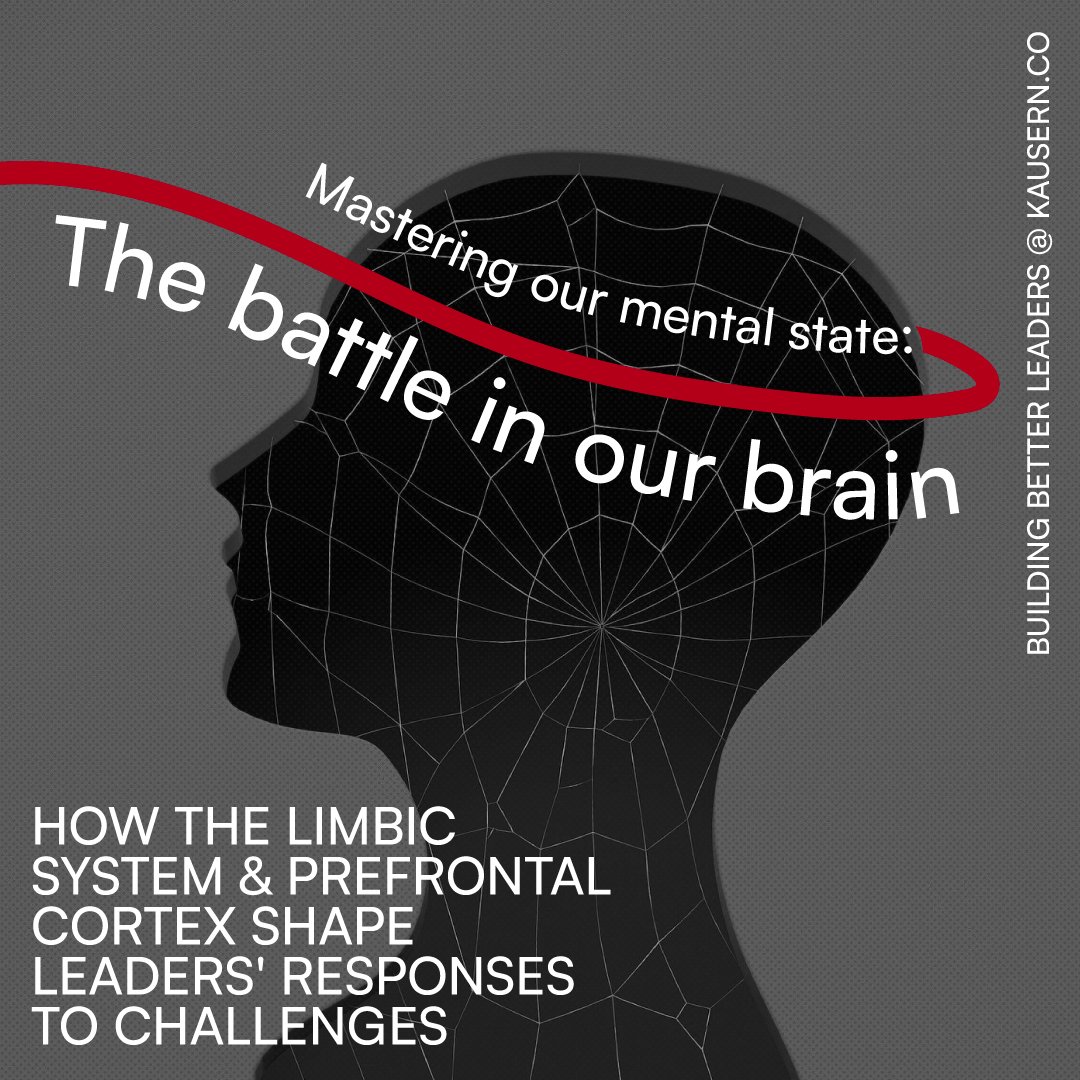Mastering our mental state: The battle in our brain
The state you're in affects the quality of your decisions.
As leaders, understanding and managing our mental state is crucial for effective decision-making and guiding our teams to success. Our brain is not a unified entity, but a combination of different functions. Here, we'll focus on two key parts of the brain that influence how we respond to challenges: the limbic system and the prefrontal cortex.
Our INNER LAWYER: The limbic system, especially the amygdala, acts as our "inner lawyer," on guard and constantly scanning for threats and reacting swiftly to protect us. It triggers instinctual responses like fight, flight or freeze, leading to emotional reactions like fear, blame-shifting or defensiveness. For example, if a team member challenges your strategy, your amygdala might cause irritation or defensiveness, leading you to counter in order to protect your credibility. This leads to impulsive decisions that could harm your team - like saying something hurtful that you can't take back.
Our INNER COACH: In contrast, the prefrontal cortex is our "inner coach," responsible for reasoning, planning, and emotional regulation. It helps us assess situations objectively and align responses with our leadership principles. Metacognition or “thinking about thinking”, is a vital function of the prefrontal cortex. It helps you recognize your immediate emotional reactions and decide whether they are helpful or harmful in a given situation. In the same scenario, activating your inner coach allows you to consider the feedback objectively and use it to improve the strategy, demonstrate emotional intelligence and fostering open dialogue and collaboration.
WHICH IS BETTER? There’s no definitive answer. Leaders must balance their inner lawyer and inner coach by cultivating self-awareness. Recognizing when the amygdala is taking over (for me, it’s when I feel tightness in my chest and neck) and consciously engage the prefrontal cortex helps shift from reactive to reflective leadership. We must learn to ask our inner lawyer to stand down and summon our inner coach to step up. This is crucial in today’s complex work environment. Staying calm during crises is a valuable leadership trait.

